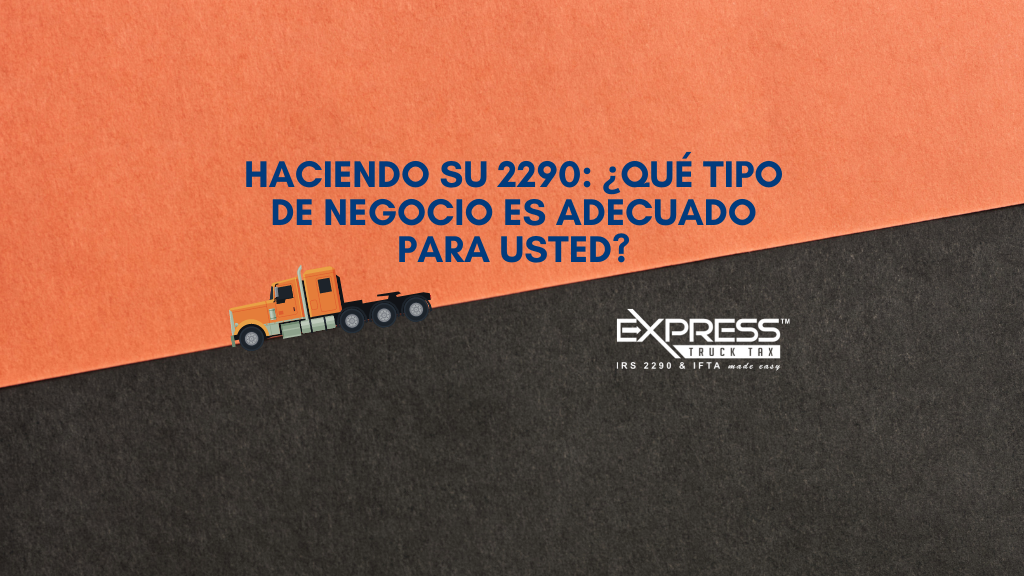
La temporada de impuestos se acerca rápidamente y también lo es la fecha límite para hacer su Formulario 2290. Estos formularios a menudo hacen preguntas que pueden parecer confusas al principio. Una de las preguntas que le hacen cuando se registra para presentar es ¿bajo qué tipo de negocio está presentando? ¿Qué es un tipo de negocio y cómo sabe cuál es el adecuado para su negocio de camiones?
A continuación, encontrará una guía muy útil que explica más sobre cada tipo de negocio para determinar cuál es el mejor para usted.
Propietario único o LLC de un solo miembro
En resumen, un propietario único es el propietario único de un negocio.
S-Corporación de LLC como S-Corp
Las corporaciones S son corporaciones que eligen pasar los ingresos, pérdidas, deducciones y créditos corporativos a través de sus accionistas para propósitos de impuestos federales. Esto permite a las corporaciones S evitar la doble imposición sobre los ingresos corporativos.
C-Corporation o LLC como C-Corp
Corporación C, según la ley federal de impuestos sobre la renta de los Estados Unidos, es cualquier corporación que paga impuestos por separado de sus propietarios. A diferencia de las corporaciones C, las corporaciones S no pagan impuestos por separado.
Sociedad o LLC como Sociedad
Una sociedad es donde dos o más personas son propietarias del negocio.
Fincas
Los bienes son todo el dinero y la propiedad que posee una persona en particular, especialmente al momento de su muerte.
Fideicomisos y fiduciarios
Un fideicomiso es una relación cuando una persona tiene el título de la propiedad. Un fiduciario es una persona u organización que actúa en nombre de otra persona.
Organización Exenta
Para que una organización se considere exenta, debe ser una organización caritativa, una fundación privada u otra organización similar que esté exenta del impuesto federal sobre la renta.
¿Qué sucede si elige el tipo de negocio incorrecto?
No te preocupes, sucede, todos cometemos errores. Simplemente puede hacer clic en su nombre en la esquina superior derecha y luego hacer clic en la flecha desplegable. Luego hará clic en “Mi cuenta”, que lo llevará a una página con múltiples opciones. Desde allí, seleccione la opción titulada “Administrar empresas” haciendo clic en el icono del lápiz.
Cuando vea el nombre de la empresa que desea cambiar, haga clic en el ícono de lápiz a la derecha y lo llevará a la página que le permitirá cambiar el tipo de empresa.
Luego, en tipo de negocio, seleccione el menú desplegable y desde allí puede seleccionar el tipo de negocio que mejor describa su negocio de camiones.
Si tiene alguna pregunta, llame al 704.234.6005.
¡Haga su 2290 hoy!



